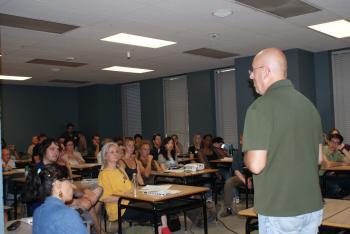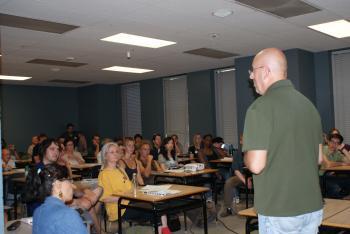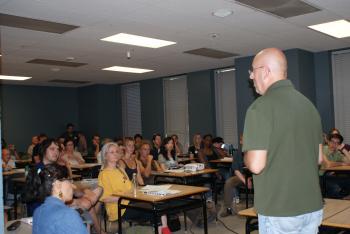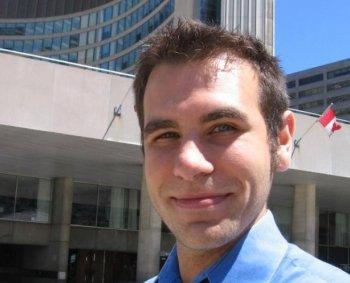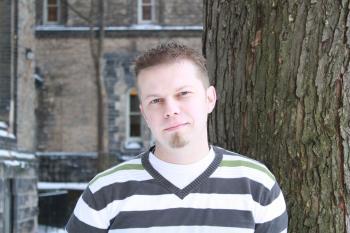With the backing of the Council of Canadians, GreenPeace Canada, labour organizations, environmental groups, and progressive think tanks, the People’s Summit was billed as an alternative to the G8 and G20 summits taking place this week in Ontario.
Held in Toronto from June 18 to June 20, the People’s Summit featured workshops, film screenings, and panels, with lectures on global justice, the environment, gender, and economics. It was open to everyone, and everyone was free to voice their opinions and concerns about the state of the world.
More than 100 groups from Canada and other countries participated, with about 180 sessions organized in five main themes: Global Justice, the Environment and Climate Change, Human Rights and Civil Liberties, Economic Justice, and Building the Movement. Participants were offered open space sessions to discuss key issues.
The summit aimed to build solidarity across movements and ensure all voices were represented. Coordinator Marya Folinsbee said in a press release that the summit had “more legitimacy in representing the aspirations of the people of the world than the G8 and G20 can ever claim.”
“The G20 wants to maintain the status quo for its own benefit. The rest of the world wants change,” she said.
Tony Clarke, director of the Ottawa-based Polaris Institute, said that moving to a greener economy is an issue that should take front and centre at the G20.
“One of the major issues that needs to be addressed by the global leaders in the G20 is how to make the great transition from the kind of purely industrial economic model we have now to a clean sustainable economic model for the future,” he said.
However, he’s not holding his breath.
Held in Toronto from June 18 to June 20, the People’s Summit featured workshops, film screenings, and panels, with lectures on global justice, the environment, gender, and economics. It was open to everyone, and everyone was free to voice their opinions and concerns about the state of the world.
More than 100 groups from Canada and other countries participated, with about 180 sessions organized in five main themes: Global Justice, the Environment and Climate Change, Human Rights and Civil Liberties, Economic Justice, and Building the Movement. Participants were offered open space sessions to discuss key issues.
The summit aimed to build solidarity across movements and ensure all voices were represented. Coordinator Marya Folinsbee said in a press release that the summit had “more legitimacy in representing the aspirations of the people of the world than the G8 and G20 can ever claim.”
“The G20 wants to maintain the status quo for its own benefit. The rest of the world wants change,” she said.
Tony Clarke, director of the Ottawa-based Polaris Institute, said that moving to a greener economy is an issue that should take front and centre at the G20.
“One of the major issues that needs to be addressed by the global leaders in the G20 is how to make the great transition from the kind of purely industrial economic model we have now to a clean sustainable economic model for the future,” he said.
However, he’s not holding his breath.
